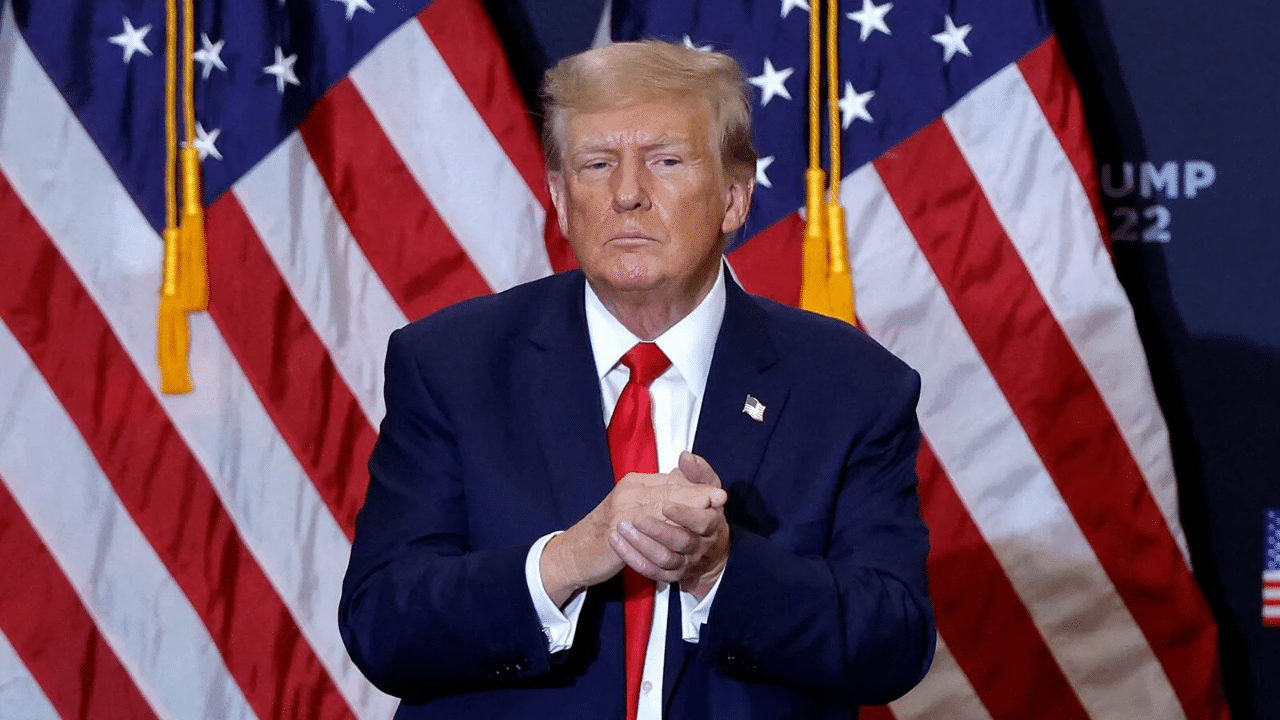In an intriguing turn of events, Republican presidential hopeful Donald Trump has heralded a significant move for the cryptocurrency sector by announcing that Howard Lutnick, the esteemed CEO of Cantor Fitzgerald, will helm his transition team should he triumph in the upcoming election. The decision underscores a growing intertwining of the financial and political landscapes, specifically highlighting the pivotal role of cryptocurrency in shaping future economic policies.
The Strategic Formation of Trump’s Transition Team
The appointment of Howard Lutnick alongside Linda McMahon, a distinguished former U.S. Administrator of the Small Business Administration, marks a strategic move by Trump. This team will be further strengthened by Trump’s vice presidential nominee J.D. Vance and his sons, Eric and Donald Trump Jr., serving as honorary chairmen. Lutnick’s connection with Cantor Fitzgerald, a crucial custodian for Tether – the largest stablecoin since late 2021, spells a noteworthy chapter for the cryptocurrency sector.
Cantor Fitzgerald’s support for Tether, amidst speculation regarding its reserves, has been vocally defended by Lutnick. His assurance of the stablecoin’s financial solidity reflects a broader sentiment of confidence in the crypto industry’s potential and stability.
Impact on the crypto Industry
The entrustment of Trump’s transition leadership to Howard Lutnick has been met with enthusiasm within the crypto community. Notably, Alexander Grieve of Paradigm lauded Lutnick’s inclusion as a significant boon for the crypto industry. Grieve emphasized Lutnick’s bullish stance on cryptocurrencies and his efforts to educate lawmakers about stablecoins, signaling a potential for greater acceptance and integration of crypto within mainstream financial systems.
This development aligns with a series of moves indicating Trump’s favor towards the cryptocurrency sector. Notably, the infusion of substantial funds into super political action committees and Trump’s commitment to halting what he deems an “unlawful and un-American crackdown” on the U.S. crypto business shine a light on the strategic political embrace of cryptocurrency.
The nomination of crypto-friendly J.D. Vance as his running mate further cements Trump’s appeal to the crypto sector. Additionally, Trump’s public endorsement of bitcoin mining activities illustrates a broader acceptance and perhaps, an encouragement of the crypto industry’s growth under his political influence.
Opposition’s Engagement with Cryptocurrency
On the other side of the political spectrum, Vice President Kamala Harris, also a candidate, has started to engage with the cryptocurrency sector. Harris’s interest in gaining deeper insights into the workings and implications of cryptocurrencies signifies a bipartisan acknowledgment of the importance of understanding and perhaps integrating, digital currencies into the national economic landscape. However, Harris has yet to publicly share a definitive stance on cryptocurrencies.
Looking Ahead: The Intersection of Politics and Cryptocurrency
The current political discourse surrounding cryptocurrency, highlighted by Trump’s strategic appointments and public endorsements, illustrates the increasing recognition of digital currencies’ potential impact on national and global economics. The involvement of prominent political figures and the crypto community’s enthusiastic reactions underscore a pivotal moment for the integration of crypto into mainstream political and financial discussions.
As the political landscape continues to evolve, the role of cryptocurrency within it becomes increasingly complex and significant. The appointment of Howard Lutnick to Trump’s transition team, alongside other crypto-friendly moves, may usher in a new era of political engagement with digital currencies. This could pave the way for innovative policies that embrace the technological advancements represented by cryptocurrencies, indicating a forward-thinking approach to economic growth and stability.
In conclusion, the intertwining of politics and cryptocurrency signals a noteworthy shift towards acknowledging and potentially embracing the benefits that digital currencies may bring to the economic table. As political leaders and candidates navigate this uncharted terrain, the future of cryptocurrency in the political sphere remains a highly anticipated and closely watched development.
